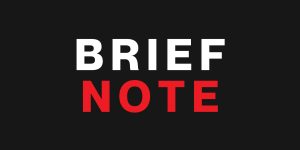
NYC gunman ID’d as Shane Tamura after deadly shooting that killed NYPD officer
Gunman Shane Tamura used Palmetto State Armory AR-15 in massacre at Midtown skyscraper
Read More
Comment

Trump tells why he fell out with Esptein
President Donald Trump has publicly revealed why he severed ties with Jeffrey Epstein, stating the disgraced financier repeatedly violated his trust.
Read More
Comment

Helmet off, Trump’s shockingly thin hair catches attention…
While donning a hard hat alongside Federal Reserve Chair Jerome Powell, Trump’s hair appeared noticeably thin after being displaced by wind, fueling ongoing speculation about his hair.
Read More
Comment

Only two things can stop Tinubu from winning in 2027 – Ali-Modu Sheriff
"I can tell you for free..."
Read More
Comment

Outrage grows over US plan to eliminate contraceptives
The Trump administration’s plan to destroy nearly $10 million worth of contraceptives has drawn sharp criticism from global health groups and lawmakers.
Read More
Comment

Peter Obi cannot afford to return to PDP, ADC warns
Bolaji Abdullahi, spokesperson for the African Democratic Congress (ADC), has warned that Labour Party presidential candidate, Peter Obi, cannot afford to return to the Peoples Democratic Party (PDP).
Read More
Comment

Five charged following viral Cincinnati brawl that left woman unconscious
The early Saturday incident occurred around 3 a.m. in downtown Cincinnati
Read More
Comment

Hackers breach intelligence site reportedly used by CIA
Hackers have breached the unclassified Acquisition Research Center (ARC) website used by the CIA and other intelligence agencies to handle sensitive contracts, the National Reconnaissance Office (NRO) confirmed.
Read More
Comment

Letitia James sues Trump over removal of illegal immigrants from SNAP
NY AG Letitia James announces lawsuit against President Trump
Read More
Comment

“Each ultimatum is a step towards war,” former Russian President, Medvedev, warns
Russia isn't Israel or even Iran.
Read More
Comment
